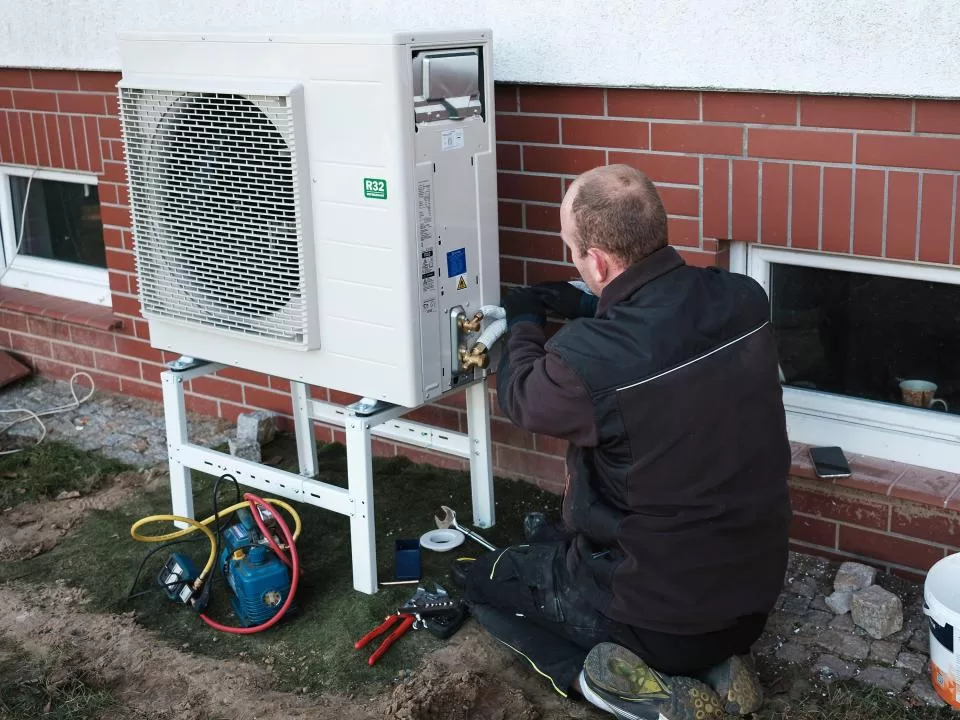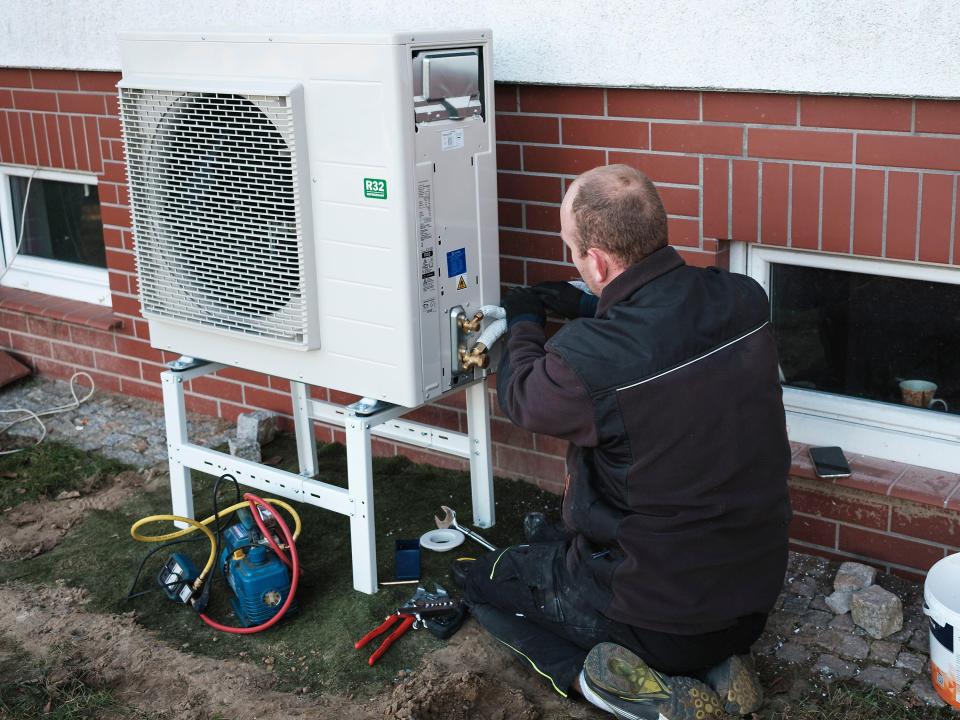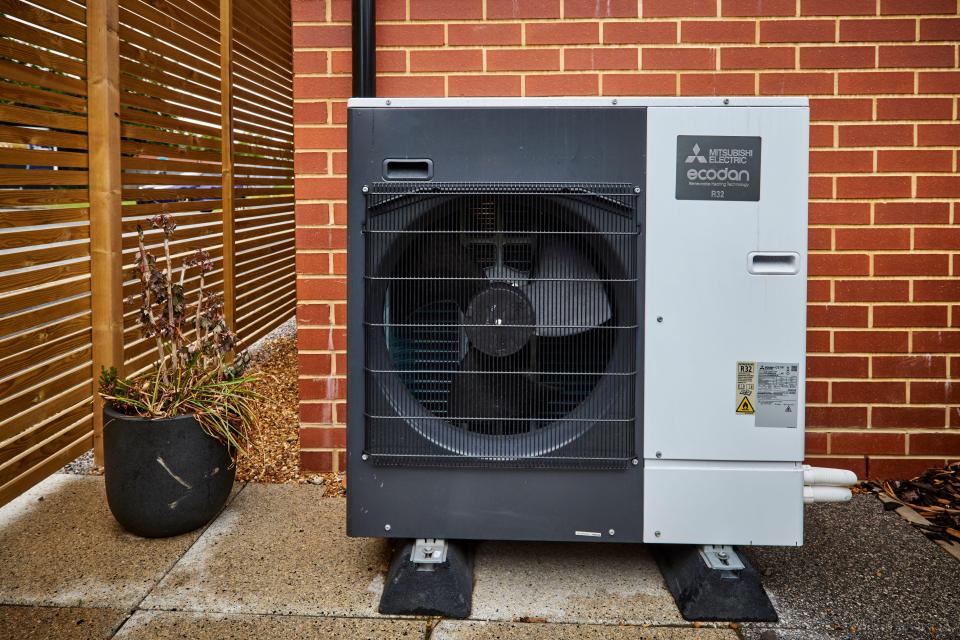THOUSANDS of households can get £7,500 free cash for home improvements that could slash their energy bills by thousands.
The government’s latest £30 million cash injection into the Boiler Upgrade Scheme means more homes than ever could benefit from cheaper heating.
The scheme, which offers households grants to install heat pumps in their homes, could save families thousands compared to a gas boiler.
And as well as an immediate cash boost, the budget is set to be almost doubled next financial year – with £295 million poured into the scheme.
Families will also enjoy more flexible eligibility criteria when it comes to installing a pump – as the government has promised to remove the stringent planning rules.
Current rules dictate that planning permission must be sought if a household wishes to install any part of a heat pump less than one metre from another property’s boundary.
But this will no longer be the case, under the new proposal.
It comes after ministers also decided to remove the need for loft or cavity wall insulation prior to installing a heat pump through the scheme.
This means families can opt into the scheme without the financial burden of installing insulation first – saving them a further £2,500, according to Daniel Särefjord, chief executive officer of Aira UK, which manufactures heat pumps.
He said: “For households that previously required loft or cavity wall insulation to secure the BUS grant, this policy change will make the installation of a heat pump £2,500 cheaper on average, allowing people to choose when to upgrade their home insulation and making heat pump ownership even more budget friendly.”
The revamped Boiler Upgrade Scheme is part of the wider Warm Homes Plan, which aims to support households with energy bills amid cuts to winter fuel payments.
The government has said £3.2 billion will be invested in the scheme across 2025/26, in hopes of supporting up to 300,000 households.”
Minister for Energy Consumers Miatta Fahnbulleh said: “The idea at the heart of our Warm Homes Plan is a simple one – all families deserve the security of a home they can afford to heat.
“But for too long, that has been out of reach for far too many people who have been left with draughty homes and sky-high bills. That is why we are taking immediate action today to make cleaner heating available to more households.
“This follows our plan to lift over one million households out of fuel poverty by consulting on boosting minimum energy efficiency standards for all renters by 2030, delivering warmer homes and cheaper bills.”
What is a heat pump?
Heat pumps work by shifting heat from the ground or air into your home.
Ground heat pumps work by transferring heat from underground through pipes which are connected to a main unit.
This heat is then pumped around your home.
Air source heat pumps work by transferring heat from outside air into water.
This water is then passed through a heat exchanger, which raises its temperature and is then passed around your pipes.
Biomass boilers work by burning logs, pellets or chips, which creates heat which is then connected to a central heating system.
The cost of installing a heat pump can vary from between £2,000 to £15,000, according to Checkatrade.
Meanwhile, the cost of having a biomass boiler installed in your property costs £16,000 on average, it says.
What energy bill help is available?
THERE’S a number of different ways to get help paying your energy bills if you’re struggling to get by.
If you fall into debt, you can always approach your supplier to see if they can put you on a repayment plan before putting you on a prepayment meter.
This involves paying off what you owe in instalments over a set period.
If your supplier offers you a repayment plan you don’t think you can afford, speak to them again to see if you can negotiate a better deal.
Several energy firms have grant schemes available to customers struggling to cover their bills.
But eligibility criteria varies depending on the supplier and the amount you can get depends on your financial circumstances.
For example, Scottish Power customers struggling to pay their energy bills can get grants worth up to £750.
EDF, E.ON and Octopus Energy all offer grants to struggling customers too.
Thousands of vulnerable households are missing out on extra help and protections by not signing up to the Priority Services Register (PSR).
The service helps support vulnerable households, such as those who are elderly or ill, and some of the perks include being given advance warning of blackouts, free gas safety checks and extra support if you’re struggling.
Get in touch with your energy firm to see if you can apply.
What is the Boiler Upgrade Scheme and who is eligible?
You can get a grant worth up to £7,500 to replace an old fossil fuel heating system with a heat pump or biomass boiler.
You can get £7,500 towards the cost of installing an air source heat pump and £5,000 towards a biomass boiler.
Those installing a ground source heat pump, including water source heat pumps, can get £7,500 grants.
But there’s eligibility criteria you need to hit, if applying for a heat pump. You must:
- live in England or Wales
- own the property you’re applying for
- be using the grant money to replace a fossil fuel heating system (such as oil, gas, electric or liquefied petroleum gas)
- have a valid Energy Performance Certificate (EPC)
You will still be eligible if you’ve already had funding to make your property more energy efficient, for example if you’ve insulated it.
The specific eligibility criteria if you are applying to install a biomass boiler varies from ground and air source heat pumps.
You can find out more information by visiting the Government’s
How to apply
You can apply for one of the grants by first contacting a MCS certified installer to get a quote.
They should tell you if you are eligible for one of the grants.
You can find a list of MCS-certified installers by going on the msccertified.com website.
Once you’ve agreed a quote with the installer, they will apply for the grant on your behalf.
The value of the grant is then deducted off the cost of installation, which of course means you might have to pay out some money towards the cost of having one installed.
So, for example, if you are applying for an air source heat pump and it costs £12,500 in stall, you would have to pay £5,000.
Are heat pumps worth it?
Heat pumps can help you slash your energy bills, and they’re also more environmentally friendly as they have a small carbon footprint.
Another advantage to them is they tend to have a longer lifespan than gas boilers.
But, there can be some pitfalls.
First, the initial up front cost of installing one of the gadgets can set you back thousands of pounds, even if you get help through the government’s Boiler Upgrade scheme.
Air-source heat pumps, in particular, can run less efficiently in the winter too, when the machine has to work harder to produce warm water.
Heat pumps are known for how noisy they can be, although this shouldn’t be too much of an issue if it has been installed in the right place.
Beyond this, because heat pumps operate off electricity, you might find your electricity bill goes up slightly after installing one.
But bear in mind the savings you make on your gas bill can outweigh the rise.
Plus, how much they actually save you depends on how much your current bill is, and how you get your energy.
Plus, depending on which type of heat pump you get, you might have to fit it outside your home.
An air-source heat pump for example will need to transfer air from outside into water for the inside of your home.


